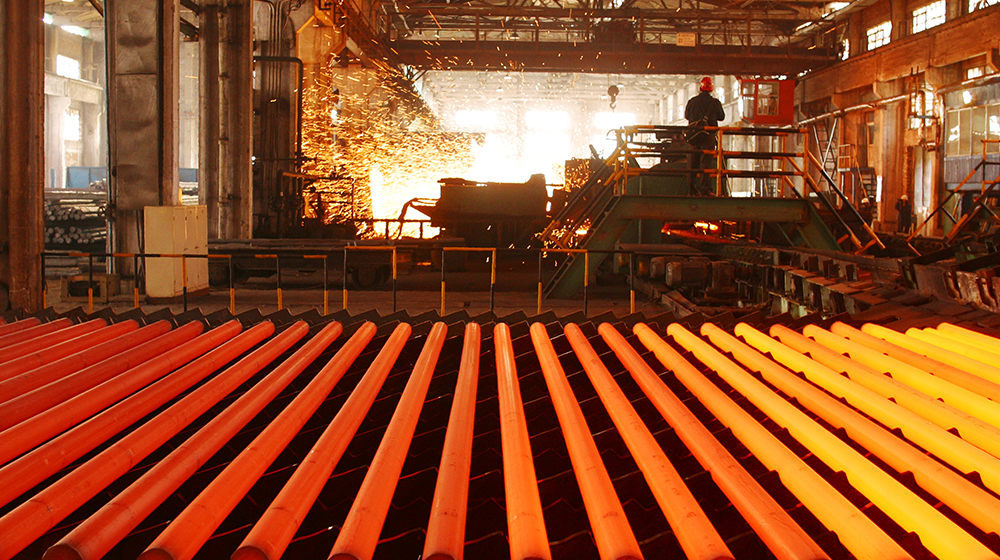Table of Contents
Understanding the Importance of API 5CT OCTG Standards in Oil and Gas Operations
In the vast and intricate network of the oil and gas industry, where precision and reliability are paramount, standards play a pivotal role in ensuring operational integrity and Safety. Among these standards, API 5CT OCTG (Oil Country Tubular Goods) stands as a cornerstone, defining the specifications for seamless steel casing and tubing used in drilling and extracting hydrocarbons from the earth’s subsurface. Understanding the importance of API 5CT OCTG standards is not merely a matter of compliance but a fundamental aspect of ensuring the efficiency, durability, and safety of oil and gas operations.

At its core, API 5CT OCTG sets forth stringent requirements for the manufacture, inspection, and testing of seamless Steel Pipes and tubes used in oil and gas wells. These standards cover a wide range of aspects, including dimensions, mechanical properties, chemical composition, and testing procedures. By adhering to these specifications, manufacturers can produce OCTG products that meet the rigorous demands of the industry, guaranteeing their suitability for downhole environments subjected to extreme pressures, temperatures, and corrosive conditions.
One of the primary benefits of API 5CT OCTG standards lies in their role in ensuring compatibility and interoperability among different components of the wellbore. Seamless integration of casing, tubing, and other downhole equipment is essential for maintaining well integrity and maximizing production efficiency. By adhering to standardized dimensions and performance criteria, operators can avoid compatibility issues and minimize the risk of equipment failure, which could Lead to costly downtime or even environmental hazards.
Moreover, API 5CT OCTG standards contribute to the overall safety of oil and gas operations by establishing rigorous quality control measures throughout the manufacturing process. From raw material sourcing to final inspection, manufacturers are required to adhere to strict procedures to ensure the integrity and reliability of OCTG products. This includes conducting various non-destructive tests, such as ultrasonic inspection and magnetic particle testing, to detect any defects or irregularities that could compromise the performance of the pipes and tubes.
In addition to promoting safety and reliability, API 5CT OCTG standards also facilitate global trade and cooperation within the oil and gas industry. By providing a common framework for product specifications and quality assurance, these standards enable seamless communication and collaboration among stakeholders across different regions and jurisdictions. This fosters a more efficient and interconnected supply chain, allowing operators to access high-quality OCTG products from various sources with confidence and reliability.
Furthermore, adherence to API 5CT OCTG standards is often a prerequisite for regulatory approval and certification in many oil-producing regions worldwide. Governments and regulatory bodies rely on these standards to ensure the integrity and reliability of oil and gas infrastructure within their jurisdictions. Compliance with API 5CT OCTG requirements demonstrates a commitment to upholding the highest standards of quality, safety, and environmental responsibility, thereby earning the trust and confidence of regulators, investors, and the public alike.
In conclusion, API 5CT OCTG standards play a vital role in shaping the landscape of the oil and gas industry, serving as a benchmark for quality, reliability, and safety in drilling and production operations. By adhering to these standards, manufacturers, operators, and regulators alike can uphold the highest standards of excellence while ensuring the efficient and sustainable extraction of vital energy resources. In a constantly evolving and challenging industry, API 5CT OCTG standards provide a solid foundation upon which to build a safer, more reliable, and more resilient future for oil and gas exploration and production.
Exploring the Advantages of Seamless Steel Pipes in API 5CT OCTG Applications
Seamless steel pipes have become integral components in the oil and gas industry, particularly in API 5CT OCTG (Oil Country Tubular Goods) applications. These pipes play a crucial role in the exploration, extraction, and transportation of oil and gas resources. In this article, we delve into the advantages of seamless steel pipes within the realm of API 5CT OCTG, highlighting their importance and the benefits they offer.

One of the primary advantages of seamless steel pipes lies in their uniformity and consistency. Unlike welded pipes, which are fabricated by welding together various sections, seamless pipes are manufactured from a single piece of steel. This seamless construction ensures a high level of structural integrity and strength, making them ideal for use in demanding environments such as oil and gas wells.
Moreover, seamless steel pipes exhibit superior mechanical properties compared to welded pipes. The absence of seams eliminates weak points that are prone to failure under high pressure and temperature conditions. This inherent strength and durability make seamless pipes well-suited for withstanding the extreme conditions encountered in oil and gas drilling operations.
Another key advantage of seamless steel pipes is their enhanced corrosion resistance. The seamless manufacturing process results in a smooth, homogenous surface that is less susceptible to corrosion and erosion compared to welded pipes, which have exposed seams vulnerable to rust and degradation. This corrosion resistance extends the lifespan of seamless pipes, reducing maintenance requirements and enhancing overall operational efficiency.
In addition to their mechanical and corrosion-resistant properties, seamless steel pipes offer superior performance in terms of fluid flow. The absence of weld seams eliminates internal roughness, allowing for smoother flow characteristics and improved hydraulic efficiency. This translates to optimized fluid transport within oil and gas wells, enhancing productivity and reducing energy consumption.
Furthermore, seamless steel pipes provide greater flexibility and versatility in design and installation. Their seamless construction allows for custom lengths and diameters to meet specific project requirements, facilitating easier installation and integration into existing infrastructure. This flexibility ensures compatibility with various well designs and drilling techniques, making seamless pipes a preferred choice for API 5CT OCTG applications.
Moreover, seamless steel pipes are inherently safer than welded pipes due to their uniform composition and absence of weld seams. Welded pipes are susceptible to defects and imperfections during the welding process, which can compromise their structural integrity and pose safety hazards. In contrast, seamless pipes undergo rigorous quality control measures to ensure consistent quality and reliability, minimizing the risk of failure and ensuring safe operation in critical oil and gas operations.
In conclusion, seamless steel pipes offer a myriad of advantages in API 5CT OCTG applications, ranging from superior mechanical properties and corrosion resistance to enhanced fluid flow and safety. Their seamless construction provides unmatched strength, durability, and reliability, making them indispensable components in the exploration and production of oil and gas resources. As the demand for energy continues to grow, seamless steel pipes will remain at the forefront of innovation and efficiency in the oil and gas industry, driving advancements and enabling sustainable development for years to come.
